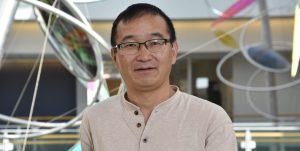Researching Plant Disease Resistance and Susceptibility & Genome Editing in Plants
Bing Yang Lab
Research Interests
The main research foci of the Yang laboratory are:
- Gaining a molecular understanding of host disease susceptibility and resistance to pathogenic microbes by using bacterial blight of rice as a disease model.
- Developing and applying genome editing technologies for gene/trait discovery and for engineering improved traits such as disease resistance in crop plants.
ABOUT THE LAB
Bing’s group has used rice as a workhorse to develop genome editing technologies and demonstrate their promising potential as biotech tools for basic and applied research in rice and other crop plants. With the increasingly available sequences of many plant genomes, technologies for genome editing have become the most promising and popular tools for scientists to understand such complex genomes and precisely and quickly manipulate them for good.
Genome editing technologies allow precise, targeted genomic changes. TALENs and CRISPR/Cas represent the state-of-the-art genome editing technologies and hold immense promise for defining the genetic and molecular basis for valuable traits, as well as for the introgression of valuable genes/traits into cultivated varieties in a timely and economically sound manner.
LAB MEMBERS
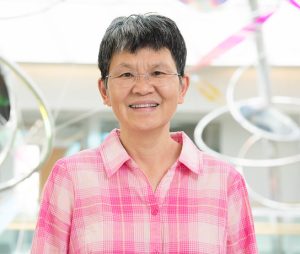
Bo Liu
Senior Research Associate - Yang Lab

Zhengzhi Zhang
Research Scientist/Academic - Yang Lab
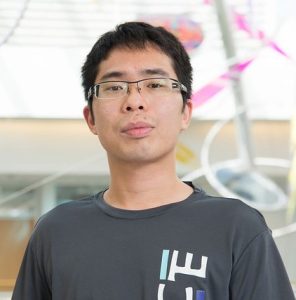
Si Nian Char
Postdoctoral Fellow - Yang Lab



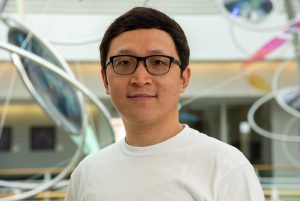
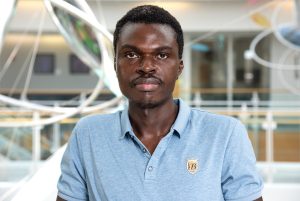



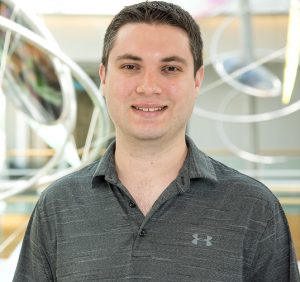
Research Topics
-
Crop improvement and agricultural sustainability
-
Plant immunity and stress responses
-
Plant-microbe interactions
-
Crop improvement and agricultural sustainability
-
Plant immunity and stress responses
-
Plant-microbe interactions
In the news

Feb. 14, 2025
Bing Yang honored by St. Louis Academy of Sciences
ST. LOUIS, MO – The Academy of Science – St. Louis is proud to announce the recipients of the 27th Annual Outstanding St. Louis Scientists Awards, recognizing individuals and organizations that have made significant contributions to the advancement of science, engineering, and technology. The awards ceremony will be held on April 3, 2025, at the Missouri Botanical Garden. Since its inception, the Outstanding St. Louis Scientists Awards has honored some of the brightest minds in the region, celebrating their exceptional achievements, groundbreaking discoveries, and lasting impact on…
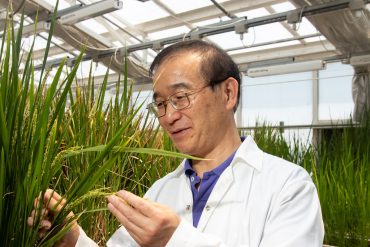
July 2, 2024
Mizzou researcher gains global insights through Fulbright opportunity
By Sarah Rubinstein | Bond LSC Bing Yang is a Bond Life Sciences Center principal investigator. | Photo by Braiden Wade, Bond LSC For a researcher passionate about making crops more resilient against diseases, working in a rapidly growing, influential country was a huge opportunity. Bing Yang, a Bond Life Sciences Center principal investigator, put his knowledge into practice earlier this year in India thanks to a recent Fulbright Specialist Program award. “It was a very rich experience for me to go there and have that firsthand experience in a foreign country,” Yang said. Yang ran a…
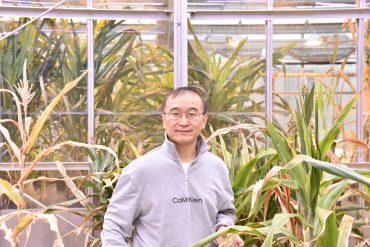
April 11, 2023
Yang uses CRISPR-Cas9 technology to fight bacterial infections in plants
Bing Yang, a Bond Life Sciences Center researcher and MU professor of plant sciences. | Photo by Josie Heimsoth By Josie Heimsoth | Bond LSC When it comes to making better crops, CRISPR-Cas9 based gene editing have revolutionized plant science with its ability to more precisely and quickly alter plant DNA. But the technology can also aid researchers in finding weaknesses in the enemies of crops like rice. Bing Yang, a Bond Life Sciences Center researcher and MU professor of plant sciences, recently used the genome editing tool to modify bacteria responsible for rice blight, and it…
